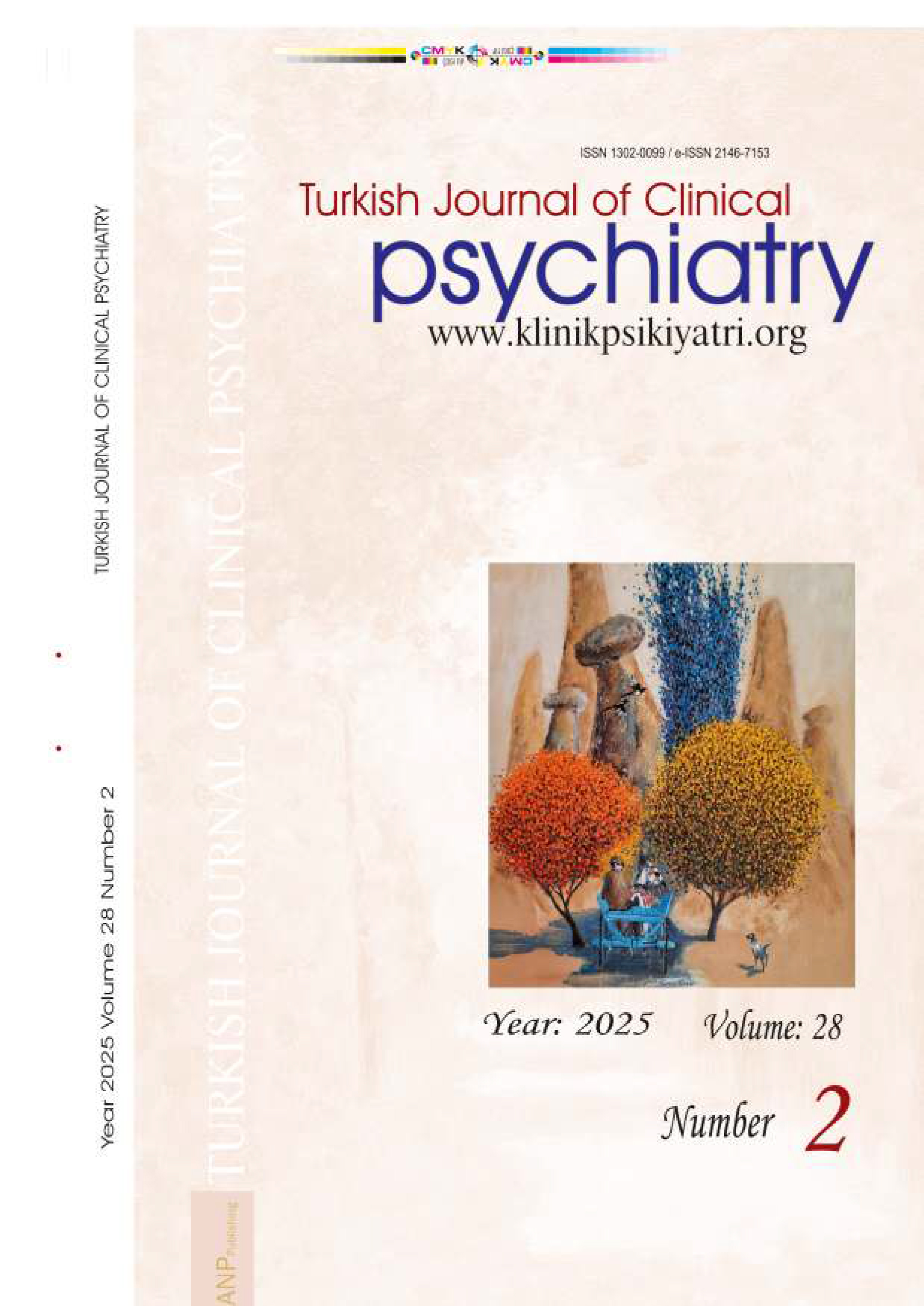





A Pediatric Obsessive-Compulsive Disorder Case after Varicella Zoster infection
Özhan Yalçın1, Elvan İşeri21Uz.Dr., Şanlıurfa Çocuk Hastalıkları Hastanesi, Şanlıurfa2Prof.Dr., Gazi Üniversitesi Tıp Fakültesi Çocuk ve Ergen Psikiyatrisi Anabilim Dalı, Ankara
There are a number of studies indicating immunological alterations in obsessive-compulsive disorder. Immunological studies on adult and pediatric obsessive- compulsive disorder patients reveal abnormal results like lymphocyte subgroup, natural killer cells variations and serum- cerebrospinal fluid cytokine, antineural antibody level alterations but these results aren't consistent with each other. But especially in prepubertal children obsessive-compulsive disorder -tic disorder subgroup PANDAS (Pediatric Autoimmune Neuropsychiatric Disorders Associated with Streptoccal infections) is well defined and widely accepted diagnostic criteria in clinical practice. Some case reports present viral or bacterial infections associated with obsessive-compulsive disorder -tic disorders other than group A beta hemolytic streptococ infections, as far as we know this is the first case presentation reporting obsessive-compulsive disorder after the varicella zoster infection. Our case, 7.5 year old, girl came to our clinic with severe, intense obsessive-compulsive disorder symptomatology with an abrupt onset just after the varicella zoster infection. There was no psychiatric history and no sign of varicella ensephalitis before the admission and there wasn't any obsessive- compulsive disorder cases in the family. As we see in PANDAS, in our case obsessive-compulsive disorder symptoms abruptly started and disappeared also symptoms didn't relapse after the discontinuation of psychotropic drug. We believe that in this case the major etiology of obsessive-compulsive disorder symptoms were due to immunulogical-autoimmune factors. We presented this case report with reviewing shortly the role of immune system in obsessive-compulsive disorder etiology and postinfectious subtypes of the obsessive-compulsive disorder.
Keywords: Key Words: Obsessive-compulsive disorder, immunology, varicella zoster, PANDASVaricella Zoster Infeksiyonu Ardından Gelişen Bir Çocukluk Çağı Obsesif-Kompülsif Bozukluk Olgusu
Özhan Yalçın1, Elvan İşeri21Uz.Dr., Şanlıurfa Çocuk Hastalıkları Hastanesi, Şanlıurfa2Prof.Dr., Gazi Üniversitesi Tıp Fakültesi Çocuk ve Ergen Psikiyatrisi Anabilim Dalı, Ankara
Obsesif-kompülsif bozukluk'ta immünolojik değişiklikler bildiren birçok çalışma vardır, immünolojik çalışmalarda, yetişkin ve pediatrik obsesif-kompülsif bozukluk hastalarında lenfosit alt grup ve natural killer hücre değişiklikleri, beyin-omurilik sıvısı sitokin ve antinöronal antikor düzeyi farklılıkları olduğu ortaya konmuştur, fakat bu sonuçlar birbirleriyle tutarlı değildir. Yalnız obsesif-kompülsif bozukluk ve tik bozukluğu olan prepubertal çocuklardaki PANDAS (Pediatric Autoimmune Neuropsychiatric Disorders Associated with Streptoccal infections) alt grubu iyi tanımlanmış ve klinik uygulamada yaygın olarak kabul edilen bir tanı kategorisidir. Bazı olgu sunumlarında, A grubu beta hemolitik streptokok infek- siyonu dışında bazı viral veya bakteriyel infeksiyonlarla ilişkili obsesif-kompülsif bozukluk olguları bildirilse de, bildiğimiz kadarıyla bu olgu sunumu varicella zoster infeksiyonu ardından obsesif-kompülsif bzoukluk bildiren ilk olgu sunumudur. Olgumuz varicella zoster infeksiyonu ardından ağır ve yaygın obsesif-kompülsif bozukluk semptomatolojisi ile kliniğimize bavuran 7.5 yaşında bir kız çocuğudur. Daha önceden psikiyatrik başvurusu ve varicella ensefaliti bulguları olmayan hastanın ailesinde de obsesif-kompülsif bozukluk öyküsü yoktu. PANDAS'ta olduğu gibi obsesif-kompülsif bozukluk bulguları ani olarak başlamış ve sonlanmış ve psikotrop ilaç kesimi ardından tekrarlamamıştır. Bu olguda obsesif-kompülsif bozukluk bulgularının gelişiminde en önemli faktörün immünolojik-otoimmün kaynaklı olduğuna inanmaktayız. Bu olguyu obsesif-kompülsif bozukluk etyolojisinde immün sistemin rolü ve obsesif- kompülsif bozuklukta postinfeksiyoz alt grupları da gözden geçirerek sunduk.
Anahtar Kelimeler: Anahtar Sözcükler: Obsesif-kompülsif bozukluk, immünoloji, varicella zoster, PANDAS (Klinik Psikiyatri 2011; 14: 59-64)Manuscript Language: English
(1685 downloaded)










